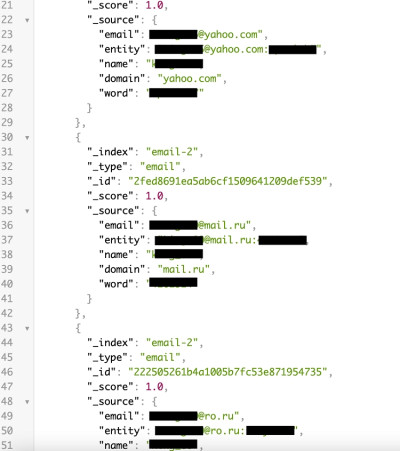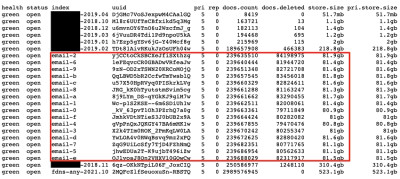A colossal data breach at the cybersecurity firm DarkBeam has exposed billions of user passwords and compromised accounts worldwide. Dubbed the 'DarkBeam Leak', this breach is being called the largest dump of usernames and passwords in history.
Let’s take a look at how it happened and why you should be aware of it.
Origins of the DarkBeam Leak
The revelation came after security researcher Bob Diachenko first discovered that DarkBeam had left one of its password databases unsecured online. During the time it was accessible, the massive trove of data was available for anyone to download. While the database has now been properly secured, billions of credentials have already been compromised.
Keep in mind that all of the data that was leaked was actually a part of previous data breaches. DarkBeam had collected the leaked data to provide credential monitoring services to its clients. However, the sheer volume of exposed records - over 3.8 billion according to estimates - means the leak will have wide-ranging impacts for everyone on the Internet, including you.
When you think of data breaches, you think of a hacker infiltrating a database. But sometimes, they happen due to human error, I.e., someone working at the company simply forgets to put a password on a database that contains confidential information.
That’s what seems to have happened with DarkBeam.

The DarkBeam leaked data. (Source: SecurityDiscovery)
Given the scale of the DarkBeam Leak, experts anticipate a surge in account takeovers, identity theft, and widespread password resets. It’s crucial that you change all your passwords as soon as you can to avoid losing access to important data.
Improve Security Against Data Leaks with Stronger Passwords
It’s important that you avoid reusing the same password and username on the Internet. This makes it easier for hackers to get their hands on your data. Diachenko noticed that the leaked data contained 16 collections named “email 0-9” and “email A-F,” with each containing 239,635,000 records.
Hackers could easily try and enter your stolen passwords on your other accounts. If you’ve been reusing the same passwords, then there’s a good chance they’ll get in. That’s why coming up with stronger passwords for your accounts is essential.
We also recommend enabling two-factor authentication on all your accounts. This will require secondary confirmation - like an SMS code or hardware key - when logging in from new devices.
Was Your Data a Part of the Leak?
While DarkBeam insists proper encryption was used, the scale of the exposure raises the likelihood passwords will be cracked. According to Diachenko, the database was left unprotected for at least two weeks - plenty of time for copies to be made.

The DarkBeam leaked data. (Source: SecurityDiscovery)
Diachenko is urging internet users worldwide to immediately check if their information was exposed as part of the DarkBeam Leak. He recommends using online monitoring tools like 'Have I Been Pwned' or 'Firefox Monitor'. These free services cross-reference email addresses and usernames against the DarkBeam database.
You could also use TotalAV’s dark web monitoring feature to find out if any of your personal or financial information has been leaked.
For those that find their credentials exposed, experts recommend taking swift action to update passwords and enable enhanced account security. You should immediately change passwords for critical services like email, banking, and healthcare portals.
It is also prudent to watch out for any suspicious login activity and remain vigilant against potential phishing scams.
Hackers and other malicious parties frequently capitalize on big breaches such as this one by creating fake emails designed to trick you into giving up personal information. If you do receive anything like this, make sure you do not open any links unless you’re absolutely sure it’s a legit email.
So What Happens Next?
While DarkBeam has apologized for the leak, they maintain there is no evidence yet of malicious exploitation. However, previous mega-breaches like 'RockYou' have shown huge dumps of credentials inevitably get leaked and used for malicious purposes.
DarkBeam says they will offer free credit monitoring to affected customers. Some experts feel this is insufficient given the severity of the breach. There are calls for fines and investigations into DarkBeam's security practices.
For internet users more broadly, the DarkBeam Leak serves as another reminder of the importance of using strong and complex passwords. There is nothing more important today than taking your online security seriously. We highly recommend investing in an antivirus such as TotalAV as it’ll keep you protected from all sorts of cybersecurity threats.
TotalAV also includes a password manager, which will make it much easier for you to create more complex passwords without having to remember all of them.
Have Data Leaks Become the Norm?
The DarkBeam Leak highlights the ongoing challenge of securing the vast amount of data companies collect against accidental exposures. Breaches of this scale ultimately erode trust in the ability of cybersecurity firms to keep data safe.
In the meantime, Internet users have little choice but to shake their heads at yet another massive dump of credentials. The DarkBeam Leak will soon fade into the backdrop of what has become a steady parade of epic cyber breaches.
The popularity of antivirus software and VPNs has helped people keep their data secure, but given how smart and technologically advanced hackers have become, becoming a part of a data breach is almost inevitable at this point.


